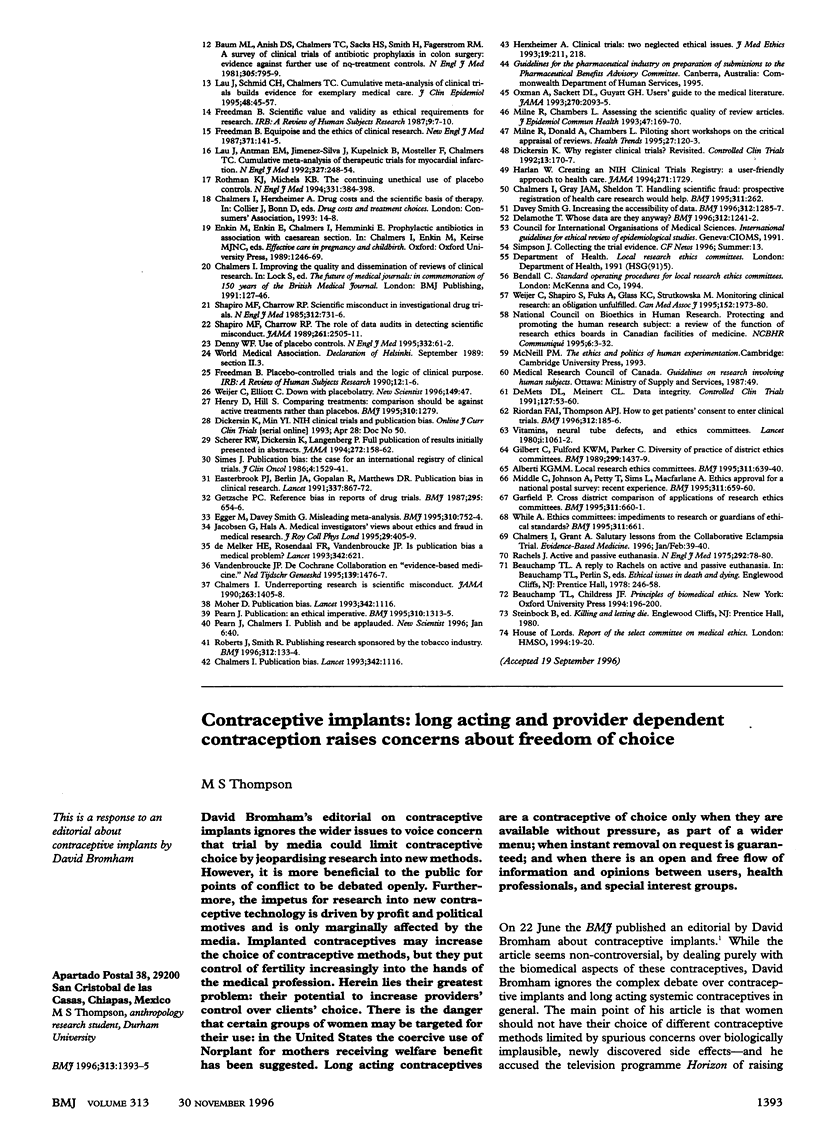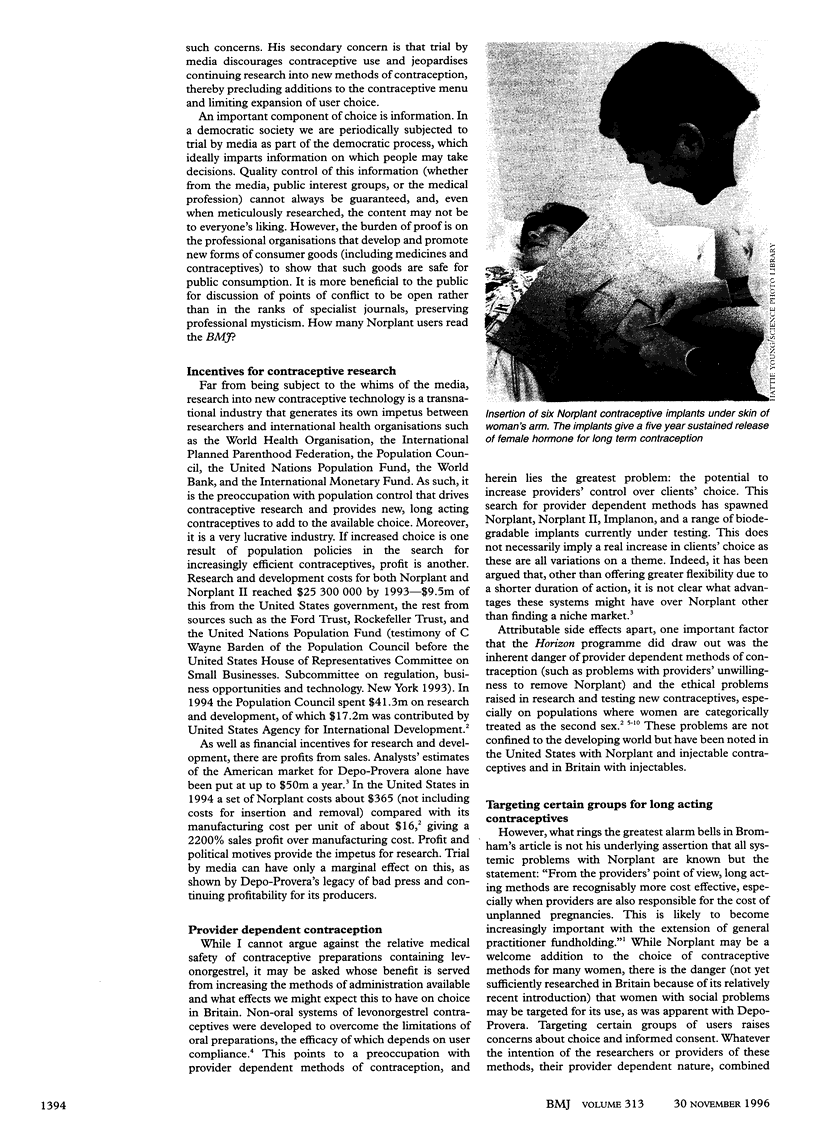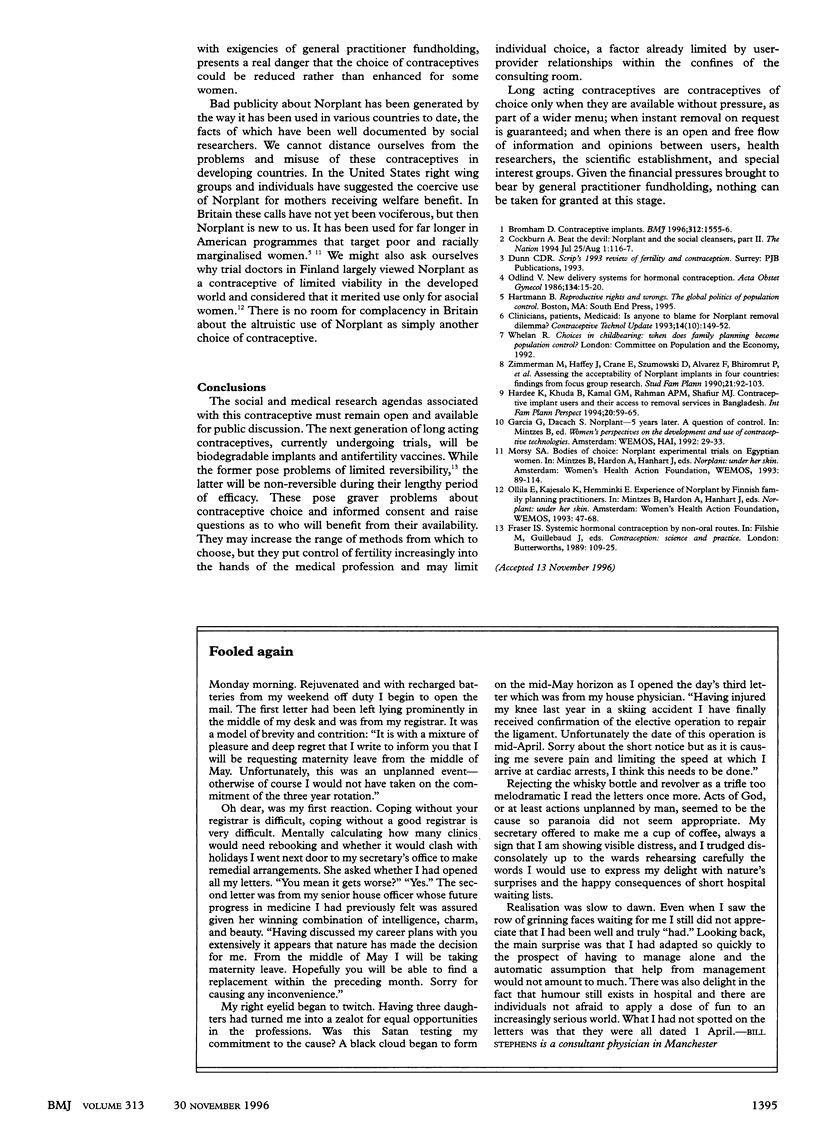Abstract
David Bromham's editorial on contraceptive implants ignores the wider issues to voice concern that trial by media could limit contraceptive choice by jeopardising research into new methods. However, it is more beneficial to the public for points of conflict to be debated openly. Furthermore, the impetus for research into new contraceptive technology is driven by profit and political motives and is only marginally affected by the media. Implanted contraceptives may increase the choice of contraceptive methods, but they put control of fertility increasingly into the hands of the medical profession. Herein lies their greatest problem: their potential to increase providers' control over clients' choice. There is the danger that certain groups of women may be targeted for their use: in the United States the coercive use of Norplant for mothers receiving welfare benefit has been suggested. Long acting contraceptives are a contraceptive of choice only when they are available without pressure, as part of a wider menu; when instant removal on request is guaranteed; and when there is an open and free flow of information and opinions between users, health professionals, and special interest groups.
Full text
PDF


Images in this article
Selected References
These references are in PubMed. This may not be the complete list of references from this article.
- Bromham D. R. Contraceptive implants. BMJ. 1996 Jun 22;312(7046):1555–1556. doi: 10.1136/bmj.312.7046.1555. [DOI] [PMC free article] [PubMed] [Google Scholar]
- Kamal N. Role of government family planning workers and health centres as determinants of contraceptive use in Bangladesh. Asia Pac Popul J. 1994 Dec;9(3):59–65. [PubMed] [Google Scholar]
- Odlind V. New delivery systems for hormonal contraception. Acta Obstet Gynecol Scand Suppl. 1986;134:15–20. doi: 10.3109/00016348609157047. [DOI] [PubMed] [Google Scholar]
- Zimmerman M., Haffey J., Crane E., Szumowski D., Alvarez F., Bhiromrut P., Brache V., Lubis F., Salah M., Shaaban M. Assessing the acceptability of NORPLANT implants in four countries: findings from focus group research. Stud Fam Plann. 1990 Mar-Apr;21(2):92–103. [PubMed] [Google Scholar]



